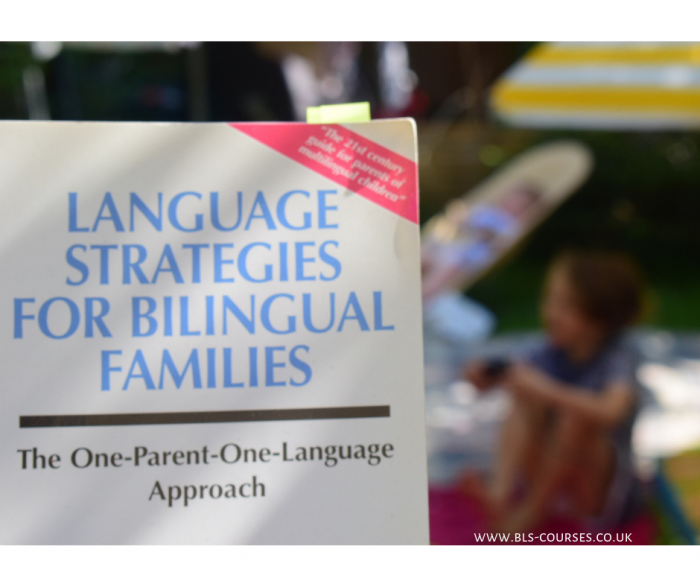This is an interesting and useful publication for bilingual families. Mainly, because each chapter finishes with some comments from the parents on the topics discussed in the given chapter. I think it’s a very good addition to the research-based theory, the real voice of bilingual parents.
What is the one-parent-one-language approach (OPOL)? “The original term came from a French linguist, Maurice Grammont, who […] introduced the idea of une personne; une langue”. Literally translated from the French as one person; one language”. (p. 1) OPOL means that each parent speaks their language to the child. (p. 213)
Suzanne Bareon-Hauwaert, the author of Language strategies for bilingual families is an expert on bilingualism both academically, through her extensive research and practically, as a mum to her three multilingual children. In her publication, she discusses various topics linked with bilingual upbringing and OPOL, from a child’s refusal to speak one language, mixing languages, homework, grandparents’ involvement, trilingualism (multilingualism), the advantages and disadvantages of bilingualism to biculturalism. Suzanne Barron-Hauwaert also discusses the philosophy behind being successful in bilingual upbringing and I personally found it fascinating, not only in regards to bilingual upbringing, but also in other aspects of the child’s life (e.g. education or interests/hobbies). So, what guarantees successful active bilingual upbringing? Interestingly, the families who are most successful are those who are passionately committed to their kids’ bilingualism. “[They] discuss, read, and plan their children bilingualism well in advance of the child‘s arrival (…). They highly value bilingualism and its benefits to both the individual and society.” (p. 112)
Do you follow OPOL? How does this approach work in your bilingual family setting? Please let me know in the comments below.
Kinga Macalla


2 Comments
The OPOL method sounds very interesting! My husband speaks Spanish and I speak English but we mix both languages with our baby.
I guess you both speak each other’s languages, hence the mixing 🙂 I think the OPOL method can put some structure into bilingual upbringing (at least it’s like that in my case!).